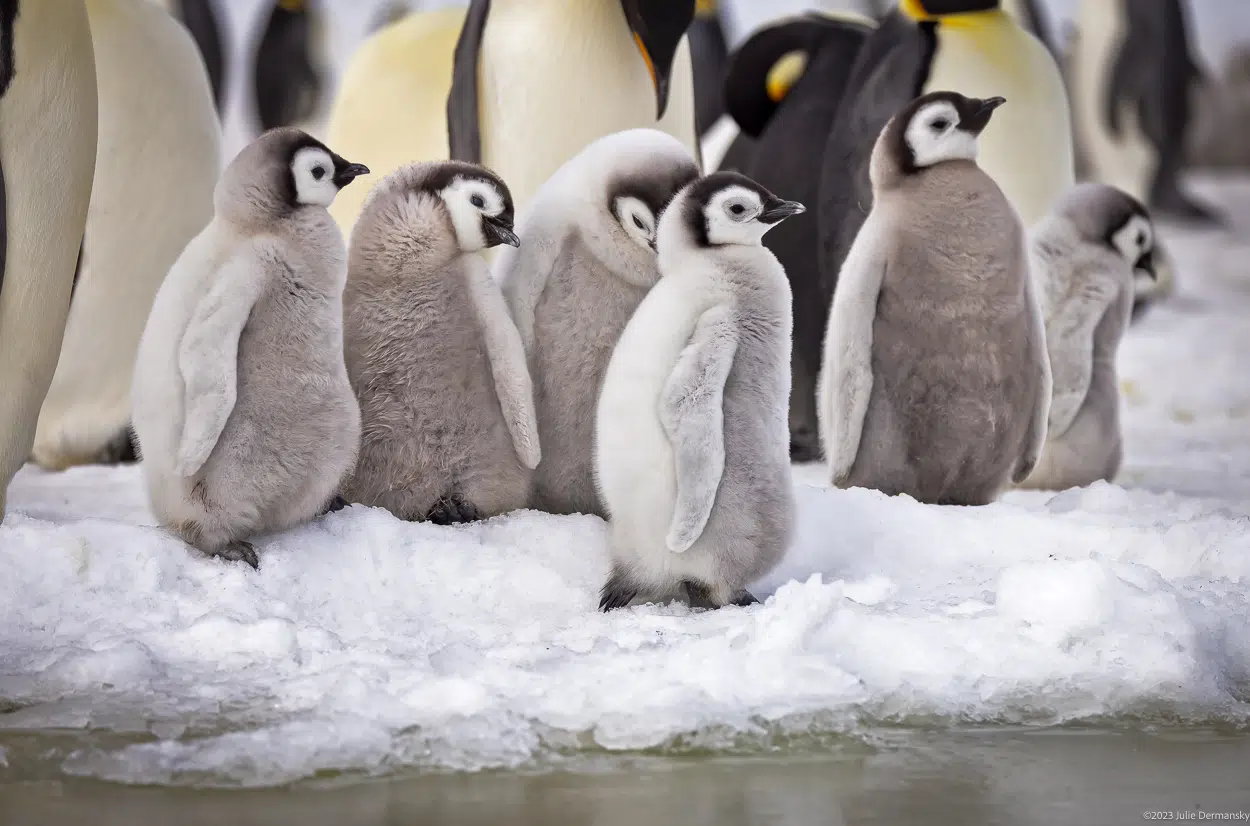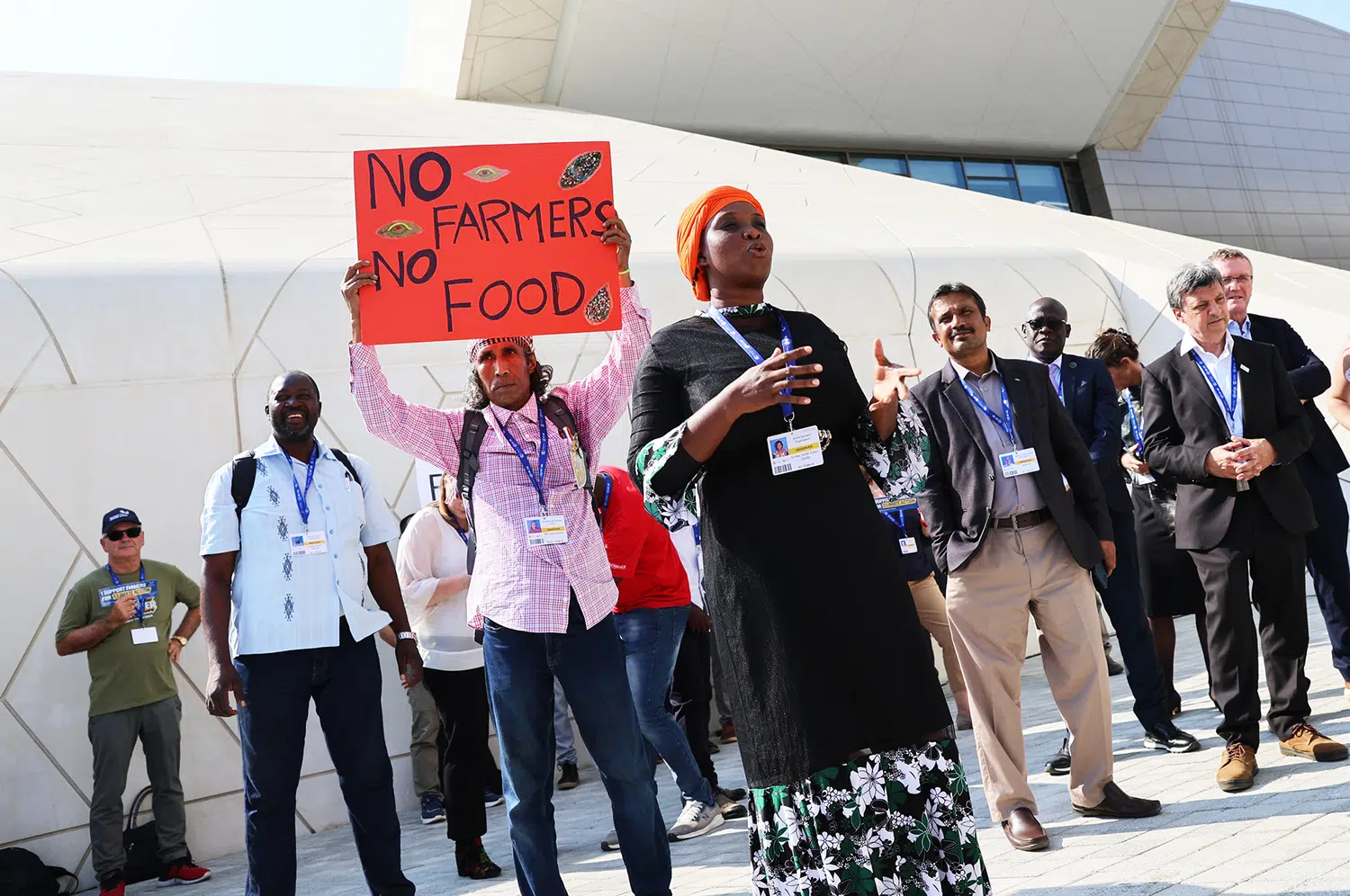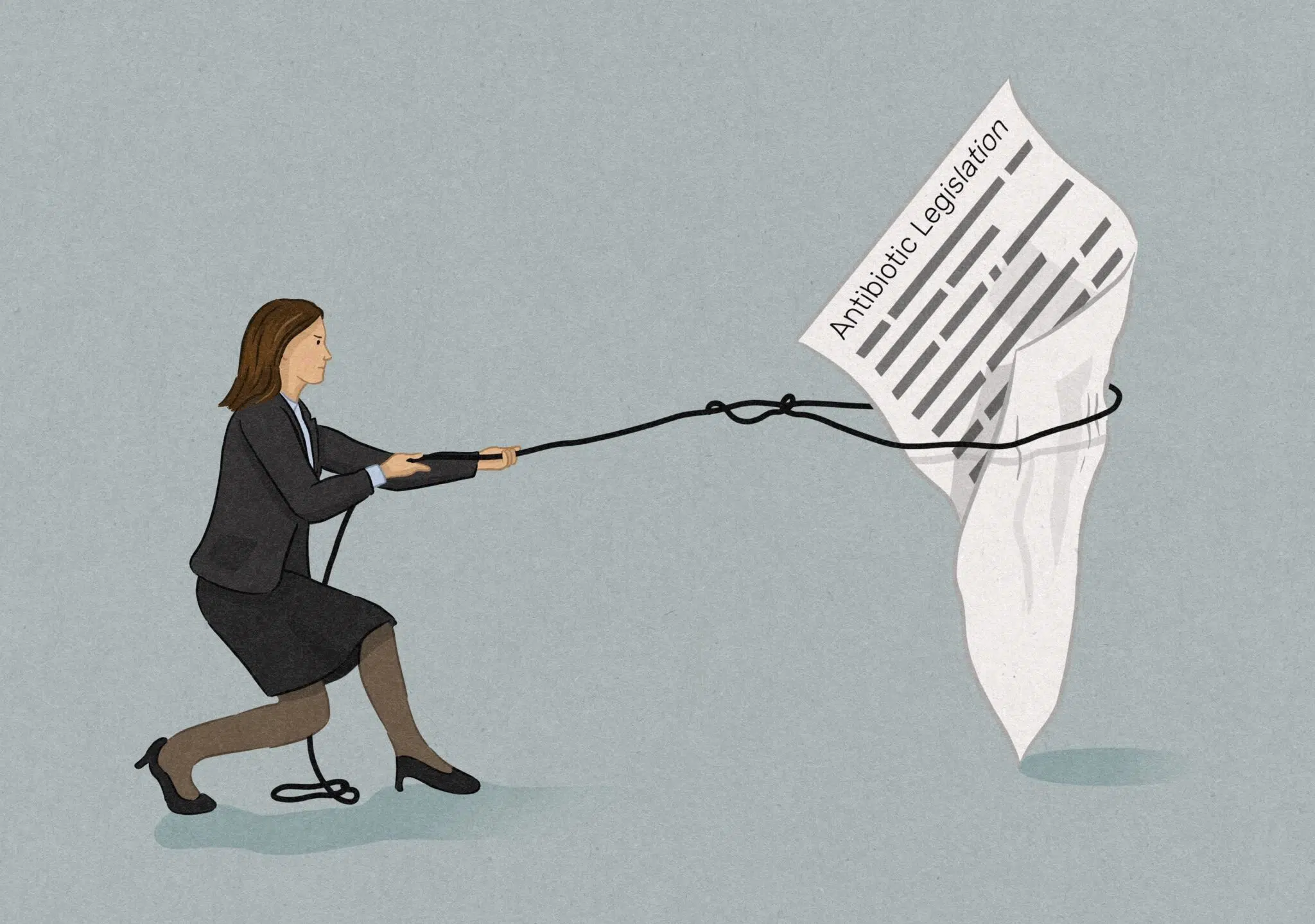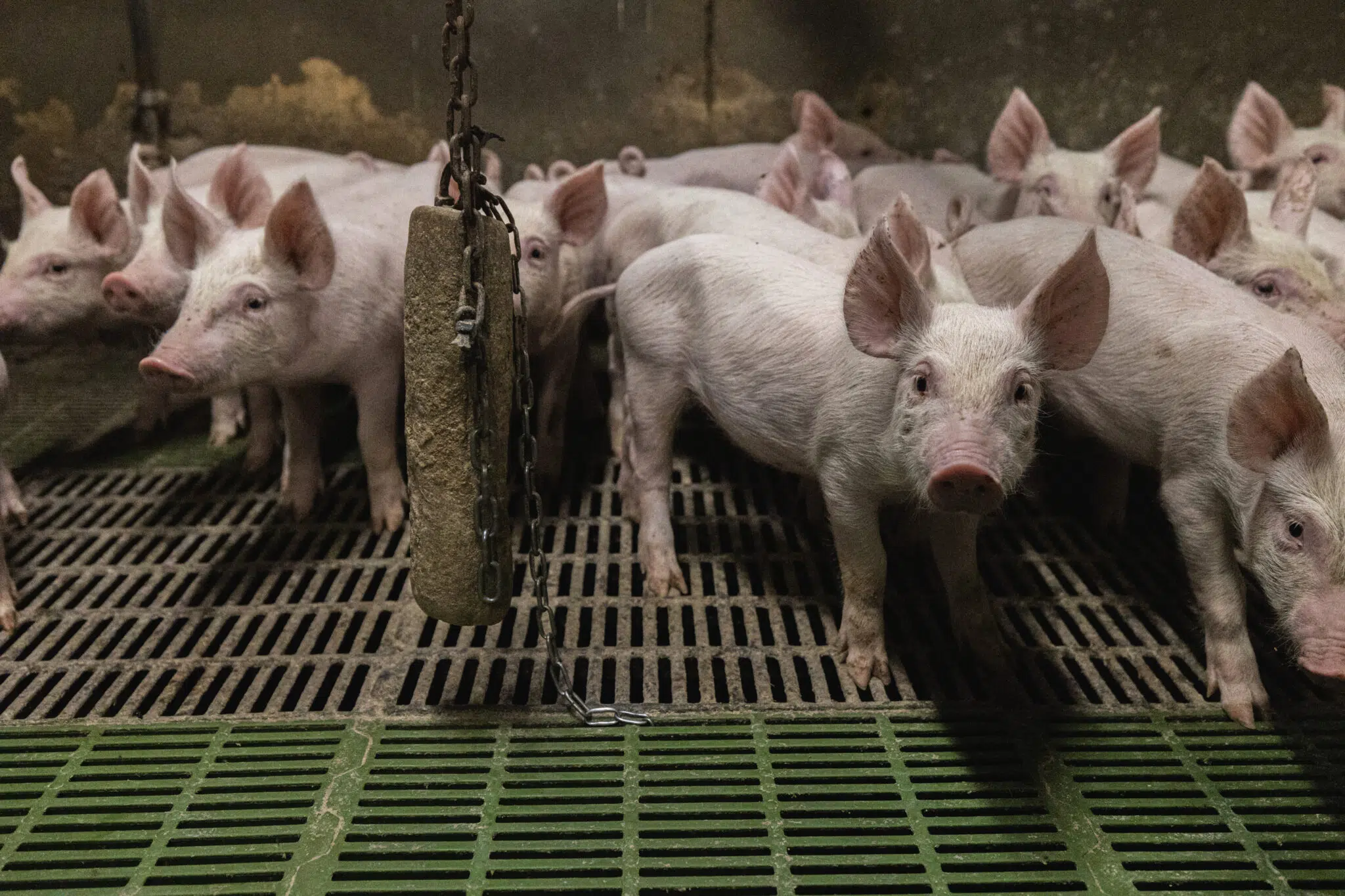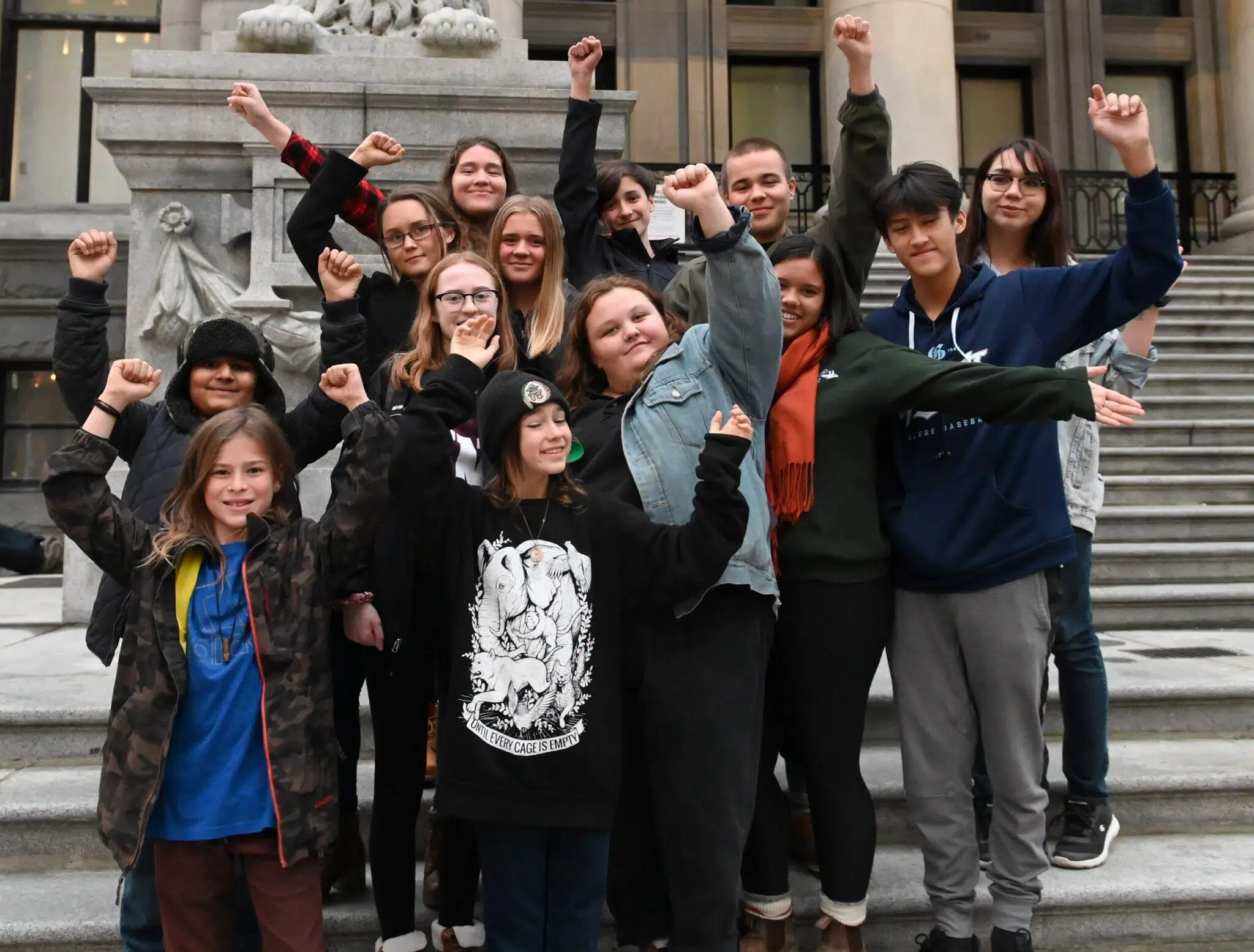
Message From the Editor
This week, multimedia journalist Julie Dermansky — who recently celebrated a decade with DeSmog — dives into the effects of climate change on emperor penguin chicks. The unusually warm temperatures that make it easier for cruise ships to bring visitors like Julie to Antarctica are also making it more and more difficult for chicks to survive.
The sea ice where the chicks hatch and grow is breaking up under them before they are done fledging, leading them to drown or freeze to death. Julie’s photos and reportage capture the singular beauty of Antarctica, as well as the heartbreaking devastation that climate change is bringing to emperor penguin colonies there. It’s a poignant reminder of why climate action is urgently needed.
Emperor penguins aren’t the only ones whose future depends on halting climate change. In the aftermath of COP28, Ibrahima Hathie published a piece this week on the family farmers who went unheard at the UN climate conference.
For years, this issue of our failing food system has been sidelined at climate summits, but at COP28 it was catapulted to center stage, with an entire day of the agenda dedicated to food and agriculture. Yet, amid all the lobbying from global agribusinesses, whose numbers doubled at last year’s summit and tripled at COP28, delegates were hard-pressed to find the smallholder farmers who feed much of the world.
We also published our new “Livestock Farming and Antimicrobial Resistance” series, detailing the overuse of antibiotics for meat and dairy farming. This helps drive the rise of antibiotic-resistant superbugs worldwide, which could cause up to 10 million deaths a year by 2050.
Investigative reporters Michaela Herrmann and Clare Carlile published an analysis detailing how the animal pharma industry is resisting moves to curb the overuse of antibiotics on farms. And Clare writes about the “boots on the ground” lobbying for animal pharma in Brussels.
“Many of these arguments have been around for decades,” said Cóilín Nunan, a policy and scientific adviser to Alliance to Save Our Antibiotics.
We’ll be taking a break from our usual newsletter schedule next week for the holidays, but keep an eye out on our social media and website for some holiday break articles. And we’ll be starting off 2024 with a bang with more climate disinformation news.
Until then, wherever you are and whatever this season means to you, we hope it is filled with joy and peace, and we thank you for your continued readership and support. Happy holidays!
Have a story tip or feedback? Get in touch: [email protected]. Want to know what our UK team is up to? Sign up for our UK newsletter.
Thanks,
Brendan DeMelle
Executive Director
P.S. Investigative journalism like this is made possible by readers like you. Can you donate $10 or $20 right now to support more of this essential work?
Image credit: Julie Dermansky
Inaction on Climate Change Is a Death Sentence for Emperor Penguin Chicks
— By Julie Dermansky (9 min. read) —
My fellow cruise ship passengers toasted to their luck for being to partake in a celebratory barbeque on the ship’s deck after visiting Snow Hill — a remote island in Antarctica’s Weddell Sea that is home to an emperor penguin colony. While it was warm enough to dine outdoors that evening on November 21, I couldn’t bring myself to raise a glass.
The unseasonably high temperature that made outdoor dining possible was also melting snow and ice at all of the emperor penguin colonies in Antarctica, condemning to death many of the chicks that we just travelled long distances to observe. Despite the great lengths emperor penguins go to protect their chicks — made famous by the movie March of the Penguins — if the sea ice where they hatch and grow breaks up before they are done fledging they will drown or freeze to death.
At COP28, Family Farmers Who Feed the World Went Unheard
— By Ibrahima Hathie (4 min. read) —
In the run-up to this year’s COP28 summit in Dubai, UN Secretary-General Antonio Guterres railed against the scourge of global hunger and climate devastation fuelled by farming.
“Global food systems are broken, and billions of people are paying the price,” he said – and he was right.
Our food system is responsible for a third of global greenhouse gas emissions, yet fails to feed the world, with a tenth of humanity experiencing hunger.
‘Narratives of Delay’: How the Animal Pharma Industry Resists Moves to Curb the Overuse of Antibiotics on Farms
— By Michaela Herrmann and Clare Carlile (19 min. read) —
Two years after landmark European Union legislation designed to curb the overuse of antibiotics on farms came into force, new analysis from DeSmog reveals eight key narratives the veterinary medicine and farming lobbies deploy to defend the billion-dollar market for the drugs.
Aiming to combat the emergence of deadly treatment-resistant bacteria in humans, known in medical jargon as “antimicrobial resistance,” or AMR, the new rules are the world’s most rigorous legislation governing farm antibiotics. The regulations banned the “routine” use of antibiotics on farms for whole herds of healthy animals, including outlawing the practice of using antibiotics to compensate for illnesses caused by poor animal welfare and hygiene.
Meet Animal Pharma’s ‘Boots on the Ground’ in Brussels
— By Clare Carlile (7 min. read) —
In September 2019, a group appeared on the Brussels political scene pledging to “bring back a balanced debate” about the benefits of meat and dairy.
Known as European Livestock Voice, it describes the European Union’s livestock farming model, “based on diversified, local and family farm structures,” as the “backbone” of the continent’s rural areas, writing on its website under the url “meatthefacts”.
Youth Climate Lawsuit Against Canadian Climate Policy Can Go to Trial, Court Rules
— Dana Drugmand (3 min. read) —
A federal appeals court in Canada breathed new life into a youth-led constitutional climate lawsuit against the Canadian government, allowing it to proceed towards trial on a narrower scope and partially reversing the trial court’s ruling that the entire case should be tossed.
In its opinion issued on December 13, Canada’s Federal Court of Appeal determined that one part of the legal claims asserted in the case was viable and that a trial would help assess whether that claim violates the constitution. Initially filed in 2019 by 15 young Canadians, La Rose v. His Majesty the King alleges Canada’s policies and actions that perpetuate fossil fuels and worsen the climate crisis amount to violations of youths’ fundamental rights under the Canadian Charter of Rights and Freedoms. The case’s claims under Section 7 of the Charter, pertaining to the rights to life, liberty, and security of the person, should be addressed given the grave impacts of the climate crisis, the appeals court determined.
From the Climate Disinformation Database: AnimalhealthEurope
AnimalhealthEurope (AHE) is a trade association representing companies that manufacture animal medicines, vaccines and other animal health products in Europe. Its membership covers 90 percent of the European market for animal health products – including animal antibiotics – and includes major animal health companies like Elanco, Zoetis, Virbac and MSD Animal Health. According to AnimalhealthEurope’s most recent declaration on the EU Transparency Register, it spent between €50,000 – 99,999 lobbying the EU in 2021. The organization has lobbied against the EU’s flagship Farm to Fork green farming reforms, which included a target to reduce the use of antibiotics for livestock by 50 percent by 2050. The group has signed multiple statements with other agribusiness lobby groups like pesticide trade association CropLife Europe, fertilizer trade association Fertilizers Europe, and farm union Copa-Cogeca, warning the reforms could damage EU agriculture.
Read the full profile and browse other individuals and organizations in our Climate Disinformation Database and Koch Network Database.
